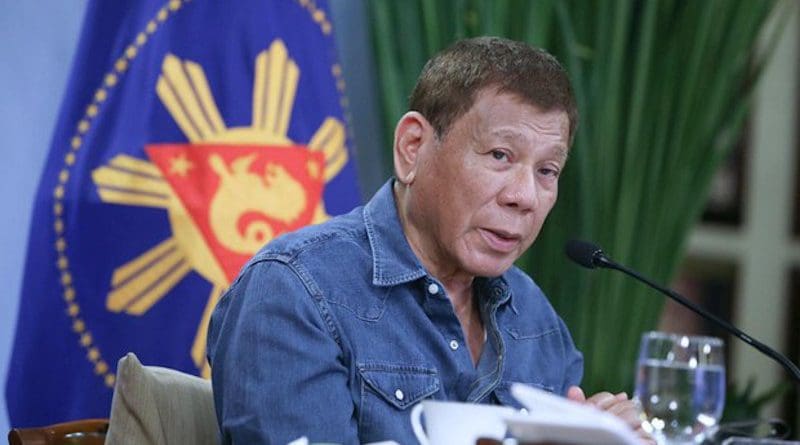Philippines Seeks To Block ICC Prosecutor From Probing Drug-War Deaths Under Duterte
By BenarNews
By Jeoffrey Maitem
The new government in the Philippines asked the International Criminal Court on Thursday to not resume its investigation into former President Rodrigo Duterte and his drug war that killed thousands of Filipinos.
In June, ICC top prosecutor Karim Khan filed a motion with the court’s pre-trial chamber to resume its probe of Duterte’s war on illegal narcotics, from 2011 to 2019. The period encompasses Duterte’s first three years as president and the five previous years when he served as vice mayor and mayor of Davao, his hometown in the south.
The Philippines officially left the ICC in 2019, a year after Duterte withdrew the country’s ratification of the Rome Statute, the international treaty which created the court based in The Hague.
On Thursday, the office of the Solicitor General Menardo Guevarra said it had transmitted the country’s reply on the “alleged crimes against humanity” by the Duterte administration via the Philippine embassy to the Netherlands.
“The Philippine government explained to the ICC Pre-Trial Chamber the extent of the drug problem in the Philippines and the process of investigating and prosecuting drug-related offenses under the Philippine legal and judicial system,” Guevarra’s office said in a statement.
The solicitor general said the “ICC has no jurisdiction over the situation in the Philippines” and argued that the killings “do not constitute ‘crimes against humanity’ considering that said incidents do not qualify as an ‘attack’ against the civilian population.’’
About 8,000 suspected addicts and dealers died during the Duterte administration’s drug war, according to official government numbers, but human rights groups have said the figure could be three times higher. An internal investigation by the justice department last year said that in many cases, police officers involved in the killings did not follow protocol and could be prosecuted.
“The Philippine government emphasized that the complaints filed before the ICC are already being investigated and prosecuted by the proper agencies and that the state is neither unwilling nor unable to carry out these domestic proceedings,” the solicitor general said.
Guevarra’s office also submitted a progress report on its investigations.
Previously, Justice Secretary Jesus Crispin Remulla said the Philippines would respond to the ICC out of courtesy only.
On Aug. 1, Ferdinand Marcos Jr., the Philippines’ new president, refused calls from human rights groups for the country to rejoin the ICC, saying the country could conduct its own investigations into deaths related to his predecessor’s drug war.
Marcos succeeded Duterte, whose daughter, Sara Duterte, serves as vice president. Observers and analysts have said that with their victories in the May general election, the former president is guaranteed protection despite losing immunity.
After Duterte withdrew the Philippines from the ICC, he attacked the court as being “utilized as a tool against the Philippines” to paint a bad picture of his administration’s efforts to rid the country of drug dealers and drug addiction.
Meanwhile on Thursday, Human Rights Watch questioned the government’s efforts to investigate and end the war on drugs.
“Since the Philippines first sought a halt to the prosecutor’s investigation last November, Human Rights Watch has monitored the situation and found no compelling evidence that the government was seriously investigating these cases, let alone prosecuting those responsible,” said Carlos Conde, a senior HRW researcher in the Philippines.
“In fact, the killings are continuing and impunity for police officers and others implicated in these abuses by all accounts remains intact,” he said in a statement.

